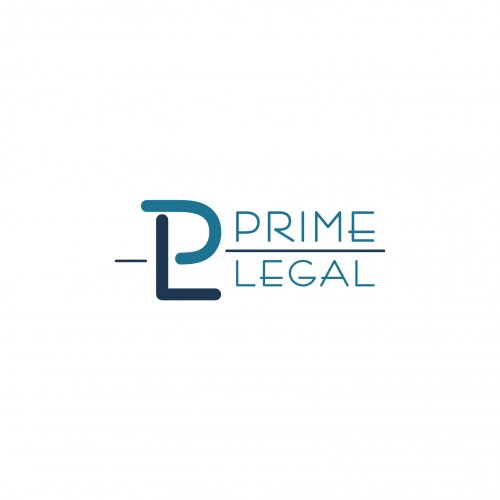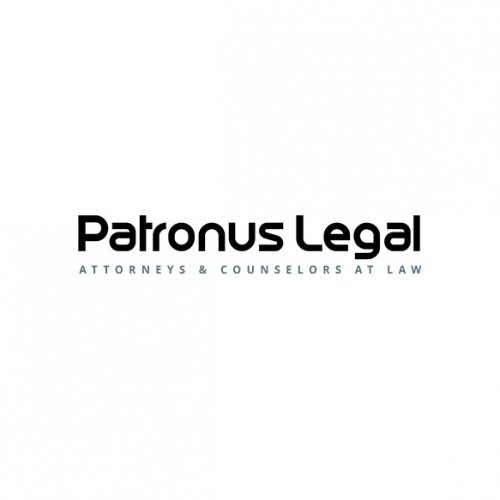Best Cyber Law, Data Privacy and Data Protection Lawyers in Tbilisi
Share your needs with us, get contacted by law firms.
Free. Takes 2 min.
List of the best lawyers in Tbilisi, Georgia
About Cyber Law, Data Privacy and Data Protection Law in Tbilisi, Georgia
The rapidly evolving landscape of technology has brought about increased concerns regarding cyber security, data privacy, and data protection. In Tbilisi, Georgia, Cyber Law, Data Privacy, and Data Protection are governed through a combination of local legislation, EU directives (due to the country's aspirations for EU integration), and international best practices. The primary aim is to foster a secure digital environment while protecting the rights and freedoms of individuals in relation to their personal data. Georgia has been actively working on strengthening its legal framework, aiming to align with global standards in safeguarding data and protecting against cyber threats.
Why You May Need a Lawyer
Securing legal help in the realms of Cyber Law, Data Privacy, and Data Protection can be crucial in a variety of situations. Common scenarios include:
1. You're a business owner unsure of how to comply with data protection regulations while handling customer data.
2. Your organization is a victim of a data breach, and you need urgent legal guidance on response and liability issues.
3. As a resident, you're concerned about how your personal data is being collected and used by online platforms.
4. You're involved in a dispute regarding intellectual property rights for digital content.
In each of these instances, a lawyer with expertise in this field can offer invaluable advice, helping you protect your rights and comply with legal obligations.
Local Laws Overview
In Georgia, key aspects of Cyber Law, Data Privacy, and Data Protection include:
Law of Georgia on Personal Data Protection: This law establishes fundamental rights and procedures concerning how personal data is collected, processed, and safeguarded.
Law on Information Security: This regulates aspects of cyber security to protect data from unauthorized access, breach, and destruction.
Criminal Code of Georgia: Certain provisions address cybercrimes, detailing offenses and penalties for activities like hacking or data theft.
Moreover, Georgia is undergoing reforms to align its regulations with the EU's General Data Protection Regulation (GDPR), further enhancing data protection and privacy measures.
Frequently Asked Questions
What is considered personal data under Georgian law?
Personal data includes any information relating to an identified or identifiable individual, such as names, ID numbers, location data, online identifiers, or factors specific to identity.
Do Georgian laws require businesses to appoint a Data Protection Officer (DPO)?
While not explicitly required by Georgian law, appointing a DPO is considered a best practice, especially for companies heavily involved in data processing activities.
How are data breaches reported in Georgia?
Organizations must notify the Personal Data Protection Inspector of breaches within a reasonable time frame, detailing the nature of the breach and remedial actions.
What are the penalties for non-compliance with data protection laws in Georgia?
Penalties range from fines to imprisonment, depending on the severity of the violation, such as unauthorized data processing or failing to secure personal data properly.
Are there specific requirements for cross-border data transfers?
Yes, data may be transferred across borders only when adequate protection is ensured, either due to legal arrangements or based on the consent of the data subject.
Can individuals access their data held by companies?
Individuals have the right to inquire whether their data is being processed, receive a copy, and request corrections where applicable.
What constitutes illegal data collection?
Collecting data without the consent of the data subject, unless legally justified, is considered illegal under Georgian law.
Is there a requirement for data encryption under Georgian law?
While specific mandates for encryption exist primarily in information security protocols, it is recommended as a best practice for safeguarding data.
How can someone withdraw consent to data processing?
Consent can be withdrawn at any time, usually through direct communication with the data processor, and they must cease processing unless legally obliged otherwise.
Do international entities have to comply with Georgian data protection laws?
Yes, any entity processing data related to individuals in Georgia must comply with local data protection laws, regardless of the entity’s location.
Additional Resources
For further guidance and support, consider reaching out to:
Personal Data Protection Service of Georgia: They provide oversight, guidance, and resources for understanding and complying with data protection laws.
Cybercrime Division of the Ministry of Internal Affairs: They handle issues related to cybercrime and can be a resource for reporting or guidance.
Georgian Bar Association: Offers referrals to specialized lawyers in the fields of Cyber Law and Data Protection.
Next Steps
If you require legal assistance in Cyber Law, Data Privacy, or Data Protection, consider the following steps:
1. Review and assess your specific needs regarding data handling or cyber-related issues.
2. Seek a consultation with a legal expert in the field to discuss your situation and explore solutions.
3. Ensure that any legal advisor you engage maintains up-to-date knowledge of both local and international laws affecting data protection and cyber security.
By taking these steps, you can effectively navigate the complexities of Cyber Law and Data Protection in Tbilisi, Georgia.
Lawzana helps you find the best lawyers and law firms in Tbilisi through a curated and pre-screened list of qualified legal professionals. Our platform offers rankings and detailed profiles of attorneys and law firms, allowing you to compare based on practice areas, including Cyber Law, Data Privacy and Data Protection, experience, and client feedback.
Each profile includes a description of the firm's areas of practice, client reviews, team members and partners, year of establishment, spoken languages, office locations, contact information, social media presence, and any published articles or resources. Most firms on our platform speak English and are experienced in both local and international legal matters.
Get a quote from top-rated law firms in Tbilisi, Georgia — quickly, securely, and without unnecessary hassle.
Disclaimer:
The information provided on this page is for general informational purposes only and does not constitute legal advice. While we strive to ensure the accuracy and relevance of the content, legal information may change over time, and interpretations of the law can vary. You should always consult with a qualified legal professional for advice specific to your situation.
We disclaim all liability for actions taken or not taken based on the content of this page. If you believe any information is incorrect or outdated, please contact us, and we will review and update it where appropriate.









